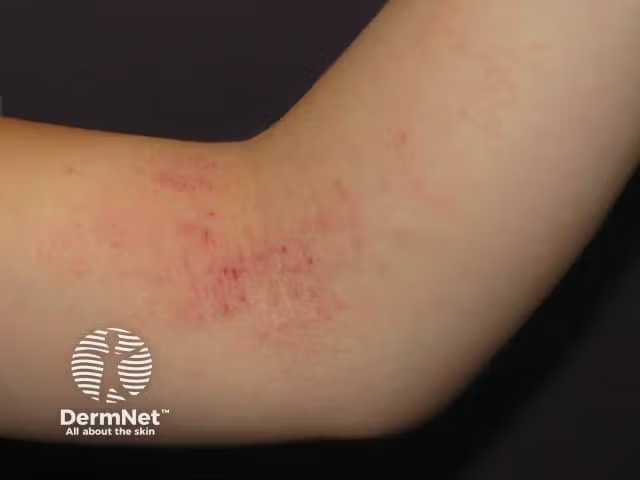- Case-Based Roundtable
- General Dermatology
- Eczema
- Chronic Hand Eczema
- Alopecia
- Aesthetics
- Vitiligo
- COVID-19
- Actinic Keratosis
- Precision Medicine and Biologics
- Rare Disease
- Wound Care
- Rosacea
- Psoriasis
- Psoriatic Arthritis
- Atopic Dermatitis
- Melasma
- NP and PA
- Skin Cancer
- Hidradenitis Suppurativa
- Drug Watch
- Pigmentary Disorders
- Acne
- Pediatric Dermatology
- Practice Management
- Prurigo Nodularis
- Buy-and-Bill
Video
Treatment Selection for AD
Author(s):
Expert dermatologists discuss treatment selection for short-term rescue vs long-term maintenance therapy.
Jonathan I. Silverberg, MD, PhD, MPH: What do you do in the case of short-term vs long-term treatment?
Andrew Blauvelt, MD, MBA: I’m going to give my answer, but I’m curious to hear what Brad and Lisa have to say because I’m talking from the perspective of a clinical trialist. We have a trial that informs us a little. It’s called the JADE REGIMEN trial, where we treat everyone with abrocitinib with the high-dose first for 3 months. A third of the responders were kept on the high dose, a third were dropped to a lower dose, and a third went to nothing; we followed them. Yes, most of the patients recurred off drug, but not all of them. About 20% did not recur out to 1 year. The patients who did the best were staying on the high dose, but half the patients on the lower dose did well. Data from that study helps inform practice and bring up the definite idea of episodic therapy. But in a trial, we haven’t had anything better to help us with episodic treatment. I know you don’t like the periodic use of prednisone in patients with atopic dermatitis.
Jonathan I. Silverberg, MD, PhD, MPH:No way.
Andrew Blauvelt, MD, MBA: I don’t either. I suggest a better alternative. A 2-, 4-, or 6-week dose of JAK inhibitors is going to be a much better option to cool off patients instead of 2 weeks of prednisone.
Brad Glick, DO, MPH, FAOCD: What about the new cyclosporine? That’s something we can intervene with that’s much likely safer. That’s what I hear you saying.
Andrew Blauvelt, MD, MBA: The practice is going to define episodic therapy, not the clinical trial community.
Jonathan I. Silverberg, MD, PhD, MPH: That’s a great point. The 1 limitation the cyclosporine always had was the 1-year recommendation from the FDA, not to go beyond that. We’re reluctant. If we can, we keep them on it not more than 6 months. The drug survival for cyclosporine is terrible. The advantage of the JAKs is dual because you have the ability to go up to a higher dose for rescue, but we also don’t want to ignore the long-term treatment goals. We’ve got data up to 52 weeks for the different JAK inhibitors. The field has worked hard over the past decades, before I even got into the field, to establish the importance of long-term treatment. Dose flexibility is an important feature that allows you to attack both the acute aspects and the chronic.
Elizabeth Swanson, MD: Some patients say, “Most of the time I do OK, but I have times when I do badly.” Starting a JAK inhibitor during those bad times is appealing. But sometimes they begin taking that medicine and they say, “This feels much better. I don’t want to live even in a more mild state.” Those patients might choose to stick with it. Having them get exposure to it for a short burst to put the fire out also gives them some experience with the drug. They say, “I want to be on this forever.”
Jonathan I. Silverberg, MD, PhD, MPH: I agree. The data that Andy mentioned about dose flexibility and being able to go to a lower-maintenance dose becomes very important because maintaining efficacy but minimizing potential risk is a super-important concept.
Transcript edited for clarity






